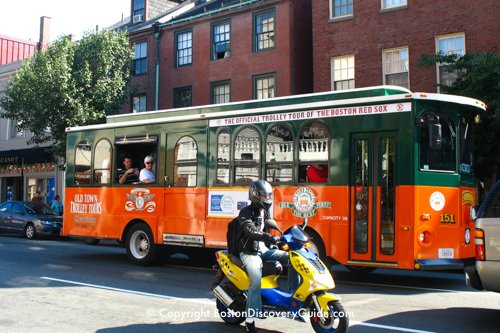The bloodiest battle on Day 1 of the Revolutionary War raged in Menotomy (now named Arlington), then a small Massachusetts settlement just outside of Cambridge and on the path of the British Troops' march to seize munitions in Concord - and their hasty retreat under gunfire from angry Colonists.
During the Menotomy battle, Samuel Whittemore demonstrated that heroism knows no age limits.
Born in England in 1694, Whittemore rose to the rank of Captain in the British Army. After moving to the Colonies at age 51 to fight against the French in 1745, he bought a farm in Menotomy on the outskirts of Boston. He married, helped raise his 8 children, and became active in town government.
When war broke out again between the British and the French in 1758, Whittemore fought again for the British. And still later in 1763, he fought again as part of a Colonial regiment in the Indian Wars, leaving his wife, children, and grandchildren to tend to the Menotomy farm.
At age 69, surely he's done enough?
No, not by a long shot! And in another dozen years when the American revolution against the British begins, he proves it.
Top photo: Patriots Day reenactors portraying the Menotomy Minute Men
Revolution Reaches Menotomy: Is Sam Too Old to Fight?
March Events
Tension between the Colonies and England had been brewing for decades.
By the 1760s, Massachusetts Bay Colony buzzed with talk about resistance.
And in Boston, Sam Adams and other agitators inflamed patriotic feelings with their talk about revolution.
Records from the late 1700s state that Sam Whittemore supported independence from the British.
Why?
Well, the reason was pretty simple. He wanted his children, grandchildren, and future descendants to be able to make their own laws, free from a distant king.
So when he sees the first group of 700 Redcoats march through Menotomy on a cold April morning in 1775 and hears rumors about battles in Concord and Lexington, he suspects trouble. And then, as he watches an additional 1,400 reinforcements march in that direction and then turn back, he knows the situation is serious.
Even though he is now 81, he straps on a sword, sticks a couple of pistols inside his belt, grabs his musket and some powder, and crouches behind a stone wall on what today is Mystic Street, near the corner of Chestnut Street. From here, he has an excellent view of the Lexington Road.
Other Menotomy Minute Men plead with him to move to a safer spot, but he says, “If I can only be the instrument of killing one of my country's foes, I shall die in peace.”
Menotomy Ambush Turns Lethal (well . . . almost!)
When the British draw near, the Menotomy Minute Men start firing and then step back out of range to reload their weapons.
Sam waits in his ambush position until the Redcoats are almost right in front of him.
At the last possible second, he leaps out. First he fires his musket and then his pistols at almost point-blank range, killing two and mortally wounding another.
Then a British soldier fires a musket at his head, also point-blank. The musket ball tears through his cheek, rips off half his face and causes him to fall to the ground.
When Sam tries to rise, fending off the British bayonets with his sword, another soldier strikes him on the head with a musket butt while others bayonet him 13 times, exclaiming “We have killed the old rebel!” (This is a family-friendly version of what they said.)
The British troops continues fighting their way through the streets of Menotomy. When they finally break free from the enraged Colonists and retreat to Boston, the toll is 40 British dead and 80 wounded - the highest casualties on that first day of the American Revolution
Tours through Boston's History
Menotomy Counts Its Dead and Wounded
About 4 hours later when the British finally disappear in the distance, the Menotomy town people and Minute Men come out collect their wounded and dead.
They are sure they'll find Sam Whittemore's body since a number of them witnessed his fight.
So you can imagine their surprise when he turns out to be still alive - and in the process of reloading his musket, hoping to get one last shot!
Using a door as a make-shift stretcher, they carry him to nearby Cooper Tavern.
Dr. Nathaniel Tufts from Medford cuts away his clothing and examines his extensive and rather horrific wounds. The townspeople recounted all of this in graphic detail later in letters and journals - but we're giving you just the summary version in case you're eating as you read this.
Certain that Whittemore will die from internal bleeding and injuries, Dr. Tufts remarks that even attempting to dress so many wounds is useless. Only because friends and family insist, he patches Sam up the best he can and sends him home to die.
Triumph in Menotomy: A Long Life and Liberty!
To everyone’s surprise—although perhaps not his own—Samuel Whittemore lives to see the Colonies gain their independence and become the United States of America.
In fact, he recovers and enjoys another active 18 years of life, proud of his service to his country.
When he finally dies at age 99, the cause is simply old age. And best of all, his 185 children, grandchildren, great grandchildren, and great great grandchildren alive at the time of his death are all free Americans.



































